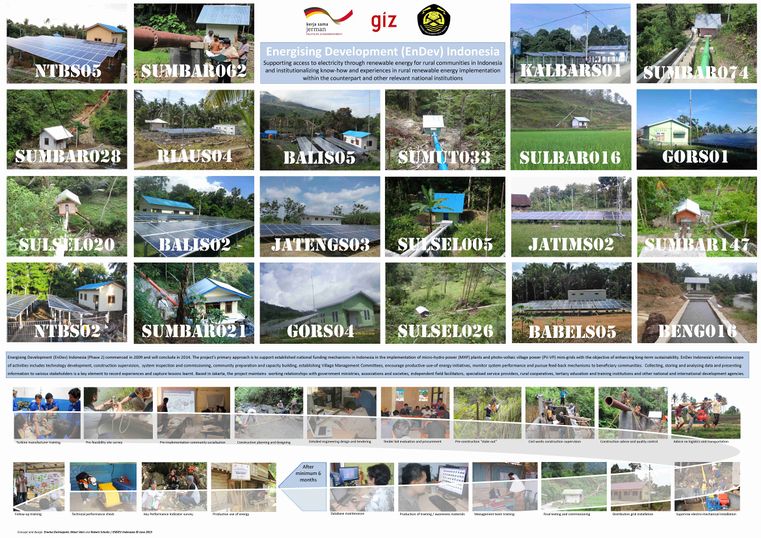EnDev Indonesia - Project Overview 2013
Overview
Energising Development (EnDev) Indonesia was launched in 2006, with the current “EnDev 2” phase commencing in 2009. In Indonesia, the project is referred to as “EnDev Indonesia”.
Objective
EnDev Indonesia’s objective is to support access to electricity through renewable energy for rural communities in Indonesia and institutionalizing know-how and experiences in rural renewable energy implementation within the counterpart and other relevant national institutions.
The below poster was designed as public relations material to graphically depict EnDev Indonesia's electrification focus and expertise. EnDev Indonesia's micro-hydro power (MHP) and solar mini-grid sites are provided with a unique identification code and data is maintained in a comprehensive database. The poster represents about 7% of the rural electrification sites supported by EnDev Indonesia to date (October 2013).
Project Approach
The project’s primary approach is to support established national funding mechanisms in Indonesia in the implementation of micro-hydro power (MHP) plants and photo-voltaic village power (PV-VP) mini-grids with the objective of enhancing long-term sustainability. EnDev Indonesia’s extensive scope of activities includes technology development, construction supervision, system inspection and commissioning, community preparation and capacity building, establishing Village Management Committees, encourage productive-use-of energy initiatives, monitor system performance and pursue feed-back mechanisms to beneficiary communities. Collecting, storing and analysing data and presenting information to various stakeholders is a key element to record experiences and capture lessons learnt. Based in Jakarta, the project maintains working relationships with government ministries, associations and societies, independent field facilitators, specialised service providers, rural cooperatives, tertiary education and training institutions and other national and international development agencies.
Download
Further Information




















